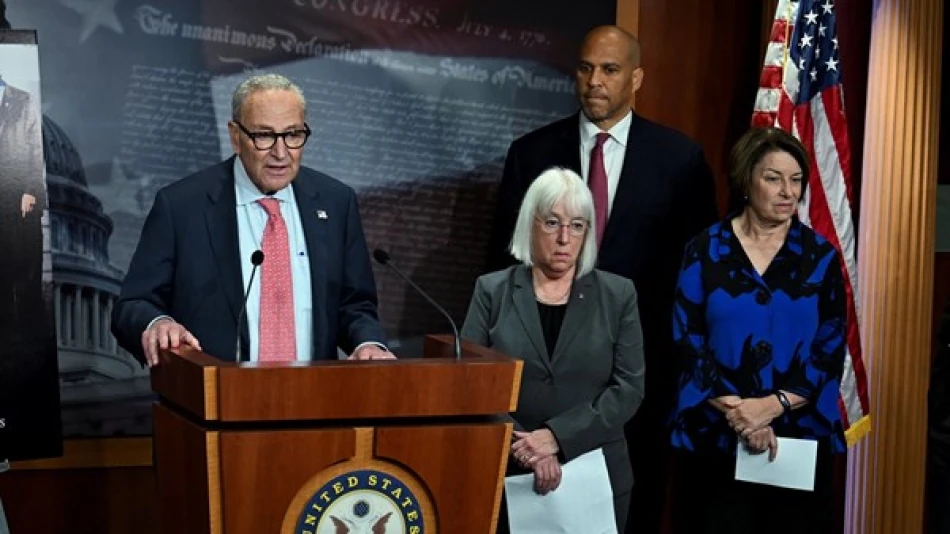
Democrats Seek Meeting with Trump to Avert Government Shutdown
US Government Shutdown Looms as Democrats and Republicans Clash Over Healthcare Funding
With just days remaining before federal funding expires on September 30, Democratic leaders Chuck Schumer and Hakeem Jeffries have called for an urgent meeting with President Donald Trump to prevent a government shutdown. The standoff centers on healthcare spending, with Democrats refusing to support what they call a "misleading" Republican spending bill that continues attacks on healthcare programs.
Senate Rejects Short-Term Funding Bill
The Senate voted 48-44 to reject a temporary spending measure that would have kept federal agencies operating beyond the September 30 deadline. The legislation would have maintained current funding levels through November 21, but faced near-unanimous Democratic opposition over healthcare allocation disputes.
Senate Majority Leader John Thune blamed Democrats for increasing shutdown risks, stating that ultimately it comes down to "a yes or no vote on whether they want to avoid a government shutdown." Republicans indicated they may attempt another vote on September 29, just one day before funding expires and after lawmakers return from their week-long recess.
Healthcare Funding at the Heart of Dispute
Democrats are demanding increased healthcare support allocations and restoration of funding cuts to Medicaid, the program serving low-income Americans. Their amendment attempts failed during the voting process, deepening the impasse.
In their letter to Trump, Schumer and Jeffries emphasized their position: "Democrats' stance has been clear and consistent. We are ready to work toward a bipartisan spending agreement that improves the lives of American families and addresses the healthcare crisis that Republicans are suffering from."
Recurring Pattern of Congressional Gridlock
This latest funding crisis reflects a troubling trend that has plagued Congress in recent years. Escalating partisan divisions have repeatedly made passing spending legislation difficult, creating recurring threats of government shutdowns that would leave federal employees without paychecks and disrupt a wide range of public services.
Economic and Political Stakes
A government shutdown would have immediate economic consequences, affecting everything from national parks to federal regulatory agencies. Federal workers would face unpaid furloughs, while essential services would continue with skeleton crews. The timing, just weeks before the November elections, adds political pressure on both parties to find a resolution.
The healthcare funding dispute highlights broader ideological differences between the parties on the role of government in providing social services, making compromise increasingly difficult as both sides face pressure from their respective bases to hold firm on core principles.
Most Viewed News

 Layla Al Mansoori
Layla Al Mansoori






